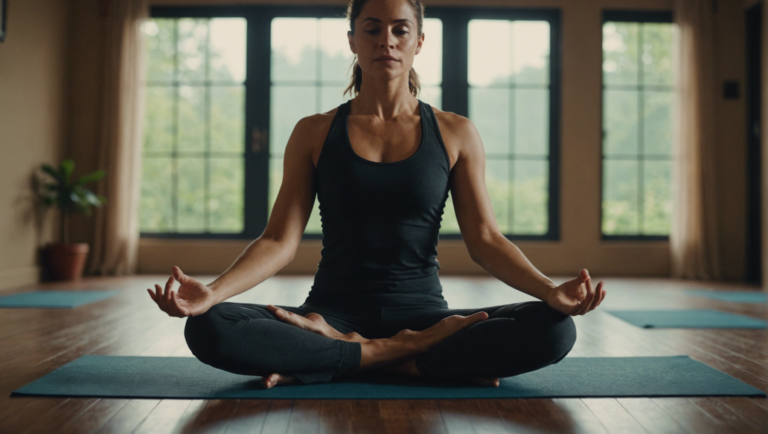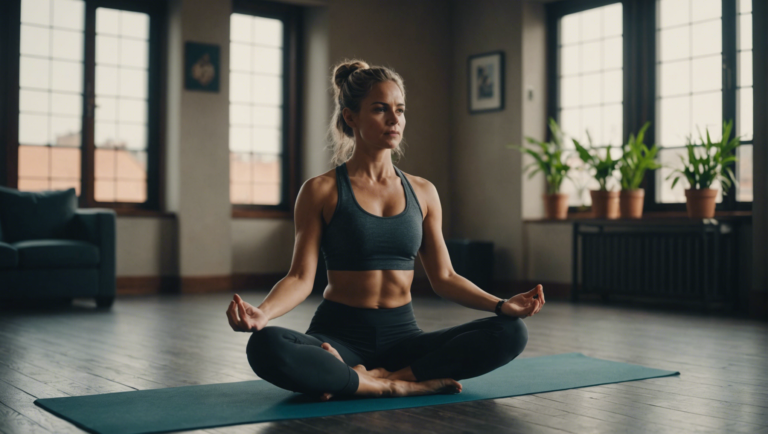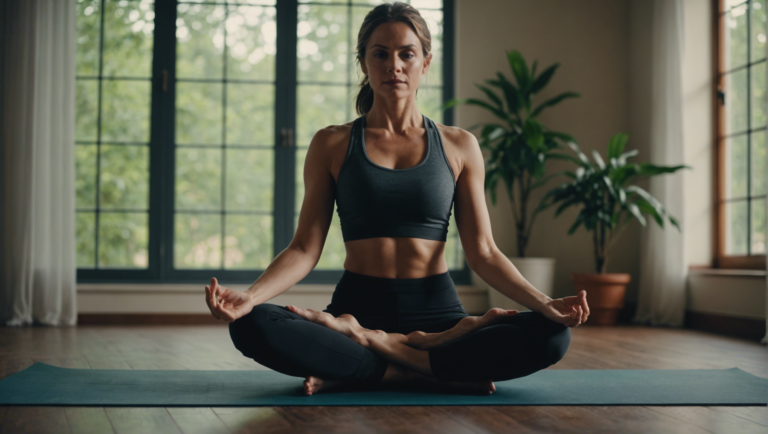Guidelines On How To Become A Certified Yoga Teacher In The UK
The Importance of Yoga Teacher Certification in the UK
Yoga has gained immense popularity in the UK, with more people turning to this ancient practice to improve their physical, mental, and spiritual well-being. As the demand for yoga classes continues to rise, the need for qualified and certified yoga teachers becomes increasingly important. In this article, we will explore the significance of obtaining yoga teacher certification in the UK and the guidelines one must follow to become a certified yoga teacher in the country.
The Benefits of Yoga Teacher Certification
Obtaining certification as a yoga teacher offers numerous benefits, both for the individual teacher and their students. Certified yoga teachers have undergone extensive training, allowing them to possess a deep understanding of yoga principles, anatomy, and teaching methodologies. This ensures that they can safely and effectively guide their students through yoga practices, helping them achieve their health and wellness goals.
Additionally, yoga teacher certification enhances the credibility and professionalism of the teacher. Certified teachers are perceived as more knowledgeable and competent, which can attract more students to their classes. Certification also provides opportunities for career advancement, such as teaching at reputable yoga studios, fitness centers, or even starting one’s yoga studio.
Requirements for Becoming a Certified Yoga Teacher in the UK
To become a certified yoga teacher in the UK, there are specific guidelines and requirements that one must meet. The primary step is to complete a Yoga Teacher Training (YTT) program accredited by a recognized yoga alliance, such as the British Wheel of Yoga or Yoga Alliance Professionals. These programs typically last for several months and cover various aspects of yoga, including philosophy, meditation, pranayama, and teaching practicum.
After completing the YTT program, aspiring yoga teachers must undertake a specified number of teaching hours to gain practical experience. This often involves assisting experienced teachers, leading classes under supervision, and receiving feedback to improve their teaching skills. Some certification programs also require candidates to pass written exams or practical assessments to demonstrate their knowledge and proficiency in teaching yoga.
Maintaining Certification and Continuing Education
Once certified, yoga teachers in the UK are usually required to maintain their certification through continuing education and professional development. This may involve attending workshops, seminars, or additional training courses to enhance their teaching skills, learn new techniques, or deepen their understanding of yoga philosophy. Continuing education ensures that yoga teachers stay updated with the latest trends and best practices in the industry, allowing them to provide high-quality instruction to their students.
Obtaining certification as a yoga teacher in the UK is not only beneficial for the individual teacher but also essential for upholding standards of quality and professionalism in the yoga industry. By following the guidelines outlined by recognized yoga alliances and committing to continuous learning and development, certified yoga teachers can make a positive impact on the lives of their students and contribute to the growth and evolution of the yoga community in the UK.
Eligibility Criteria for Yoga Teacher Certification in the UK
To become a certified yoga teacher in the UK, aspiring individuals must meet specific eligibility criteria set by reputable yoga organizations and institutions. These guidelines typically encompass a combination of formal education, practical training, and a deep understanding of yoga philosophy and practice. Understanding the eligibility criteria is crucial for anyone considering a career as a certified yoga teacher. Below are essential criteria that need to be considered:
Formal Education Requirements
To pursue certification as a yoga teacher in the UK, individuals are generally required to have a minimum educational background, which often includes a high school diploma or equivalent. Some certification programs may also have specific prerequisites in terms of higher education, such as a bachelor’s degree in a related field like sports science, anatomy, physiology, or alternative medicine. Educational requirements ensure that aspiring yoga teachers have a solid foundation of knowledge before embarking on their certification journey.
Yoga Experience and Practice
Prior experience and a dedicated yoga practice are essential for individuals looking to become certified yoga teachers. Most certification programs require candidates to have a minimum number of years of consistent practice under the guidance of experienced yoga instructors. This practical experience not only enhances the candidate’s own practice but also helps them develop a deeper understanding of yogic principles, alignment, and sequencing.
Completion of Yoga Teacher Training
One of the key eligibility criteria for becoming a certified yoga teacher in the UK is the successful completion of a Yoga Teacher Training (YTT) program from a Registered Yoga School (RYS). These programs, which are approved by renowned yoga alliances such as Yoga Alliance, offer comprehensive training in yoga asana, pranayama, meditation, anatomy, philosophy, teaching methodology, and more. The duration of YTT programs can vary, with most programs ranging from 200 to 500 hours of training.
Specialized Yoga Courses
In addition to completing a basic YTT program, some individuals may choose to pursue specialized yoga courses to enhance their teaching skills and expand their knowledge in specific areas of yoga. These courses may focus on topics such as prenatal yoga, yoga therapy, restorative yoga, or yin yoga. By undertaking specialized training, aspiring yoga teachers can cater to a broader audience and offer a more diverse range of classes and workshops.
Continuing Education and Professional Development
Continuous learning and professional development are integral parts of a yoga teacher’s journey. To maintain their certification, yoga teachers in the UK are often required to engage in ongoing education, workshops, seminars, and retreats. This not only helps them stay updated on the latest trends and practices in the yoga industry but also deepens their expertise and allows them to offer more value to their students.
Fulfilling the eligibility criteria for yoga teacher certification in the UK is a significant step towards building a successful career as a yoga instructor. By meeting the educational requirements, gaining practical experience, completing formal training, pursuing specialized courses, and committing to lifelong learning, aspiring yoga teachers can establish themselves as competent and knowledgeable professionals in the field of yoga.
Choosing the Right Yoga Teacher Training Program in the UK
Yoga has become increasingly popular in the UK, with more people looking to become certified yoga teachers. Choosing the right yoga teacher training program is crucial for your development as a yoga instructor. With a plethora of options available, it can be overwhelming to decide which training program to pursue. Here are some guidelines to help you select the best yoga teacher training program in the UK.
Research Different Yoga Teacher Training Programs
Before committing to a yoga teacher training program, it is essential to research and compare the various options available in the UK. Look into the curriculum, teaching faculty, class schedules, location, and reviews from past students. Ensure that the program is accredited by a reputable yoga alliance to guarantee the quality and legitimacy of the certification.
Determine Your Goals and Specialization
Consider your goals for becoming a certified yoga teacher and any specific areas of specialization you are interested in. Some programs focus on hatha yoga, while others may emphasize vinyasa, yin, or other yoga styles. Choose a training program that aligns with your goals and aspirations as a yoga teacher.
Evaluate the Curriculum and Teaching Faculty
Examine the curriculum of the yoga teacher training program to ensure it covers all the essential elements of yoga teaching, including yoga philosophy, anatomy, alignment, sequencing, and teaching methodology. Additionally, research the credentials and experience of the teaching faculty to ensure they are reputable and knowledgeable in the field of yoga.
Consider the Location and Schedule
The location and schedule of the yoga teacher training program are also crucial factors to consider. Choose a program that is conveniently located and offers a schedule that aligns with your availability. Some programs may be residential, while others may be non-residential, so consider which option works best for you.
Attend Information Sessions or Workshops
Before enrolling in a yoga teacher training program, attend information sessions, workshops, or open houses offered by the training providers. This will give you a chance to meet the instructors, ask questions, and get a feel for the teaching style and environment of the program.
Seek Recommendations and Reviews
Seek recommendations from fellow yogis, yoga teachers, or trusted sources who have completed yoga teacher training programs in the UK. Additionally, read online reviews and testimonials to gather insights from past students about their experiences with the training program.
Trust Your Intuition
Ultimately, trust your intuition when selecting a yoga teacher training program. Choose a program that resonates with you on a personal and spiritual level, and one where you feel supported and inspired to grow as a yoga teacher.
Choosing the right yoga teacher training program in the UK requires thorough research, consideration of your goals and specialization, evaluation of the curriculum and teaching faculty, assessment of the location and schedule, attendance at information sessions, seeking recommendations, and trusting your intuition. By following these guidelines, you can embark on a fulfilling journey towards becoming a certified yoga teacher in the UK.
Practical Steps to Prepare for Yoga Teacher Certification Exams
To become a certified yoga teacher in the UK, one must undergo rigorous training, practice, and examination to demonstrate proficiency in teaching yoga. Here are practical steps to prepare for yoga teacher certification exams:
Understanding the Curriculum
Before preparing for the certification exams, it is crucial to have a clear understanding of the curriculum set by the certifying body. Review the topics that will be covered in the exams to identify areas where you may need to focus more on studying and practice.
Establish a Consistent Practice Routine
Consistency is key when preparing for yoga teacher certification exams. Dedicate time each day to practice various yoga poses, breathing exercises, and meditation techniques. Regular practice will not only improve your skills but also help you build the stamina required for teaching long classes.
Join a Yoga Teacher Training Program
Enrolling in a reputable yoga teacher training program is essential for honing your teaching skills and deepening your knowledge of yoga philosophy. Look for programs that are accredited by recognized yoga alliances and led by experienced instructors.
Study Anatomy and Physiology
A thorough understanding of human anatomy and physiology is crucial for a yoga teacher. Study the different systems of the body, including the muscular, skeletal, and respiratory systems, to ensure safe and effective yoga practice for your future students.
Practice Teaching
One of the best ways to prepare for yoga teacher certification exams is to practice teaching. Gather a group of friends or family members and lead them through a yoga class. This practical experience will help you gain confidence in instructing others and receiving feedback on your teaching style.
Take Mock Exams
To assess your preparedness for the certification exams, take mock tests that simulate the actual exam conditions. Practicing with sample questions will help you familiarize yourself with the format of the exams and identify areas where you may need to improve.
Focus on Alignment and Adjustment Techniques
Understanding proper alignment and adjustment techniques is essential for ensuring the safety and effectiveness of yoga practice. Study different alignment cues for various yoga poses and practice hands-on adjustments to help students find the correct alignment in postures.
Stay Updated on Yoga Trends and Research
Yoga is an evolving field, with new trends and research emerging regularly. Stay updated on the latest developments in the world of yoga by attending workshops, reading books and articles, and following reputable yoga blogs and websites.
Cultivate a Mindful and Compassionate Approach
Besides mastering the physical aspect of yoga, aspiring yoga teachers should also cultivate a mindful and compassionate approach to teaching. Develop good communication skills, empathy, and patience to create a supportive and nurturing environment for your students.
By following these practical steps, aspiring yoga teachers can prepare effectively for certification exams and embark on a fulfilling journey towards becoming certified yoga instructors in the UK.
Continuing Education and Professional Development for Certified Yoga Teachers in the UK
Yoga teachers in the UK are encouraged to engage in continuing education and professional development to enhance their skills, stay updated with the latest yoga trends, and maintain their certification. There are various avenues available for certified yoga teachers to further their knowledge and expertise in the field. By participating in ongoing education, instructors can broaden their teaching techniques, deepen their understanding of yoga philosophy, and improve their students’ overall experience.
Importance of Continuing Education
Continuing education is vital for yoga teachers to stay relevant in a constantly evolving industry. It allows them to explore new yoga styles, learn about the latest research in the field, and discover innovative teaching methods. By expanding their knowledge base, instructors can offer their students a more diverse and enriching yoga practice. Additionally, continuing education demonstrates a commitment to professional growth and development, which can be appealing to prospective students and employers.
Professional Development Opportunities
In the UK, certified yoga teachers have access to a wide range of professional development opportunities. These may include advanced training courses, workshops, seminars, conferences, and retreats. Additionally, teachers can choose to specialize in specific areas of yoga, such as prenatal yoga, yoga for athletes, or yoga therapy. By pursuing further education in their areas of interest, instructors can elevate their teaching skills and differentiate themselves in the competitive yoga market.
Yoga Alliances and Associations
Yoga alliances and associations play a crucial role in providing support and resources for certified yoga teachers. In the UK, organizations like Yoga Alliance Professionals and the British Wheel of Yoga offer accreditation, networking opportunities, and continuing education programs for yoga instructors. By joining these alliances, teachers can access a community of like-minded professionals, stay informed about industry standards, and enhance their credibility within the yoga community.
Online Learning Platforms
With the rise of technology, online learning platforms have become a popular choice for yoga teachers seeking continuing education. Websites like Yoga International, Yoga Alliance, and Udemy offer a wide range of online courses and webinars on various yoga topics. These platforms provide flexibility and convenience, allowing instructors to learn at their own pace and schedule. Online learning is particularly beneficial for teachers in remote areas or those with busy schedules.
Mentorship and Coaching
Mentorship and coaching can be invaluable for certified yoga teachers looking to deepen their practice and refine their teaching skills. Experienced instructors or yoga gurus can provide personalized guidance, feedback, and support to help teachers grow in their profession. By seeking mentorship, yoga teachers can gain insights from seasoned professionals, receive constructive criticism, and overcome challenges in their teaching journey.
Continuing education and professional development are essential components of a successful career as a certified yoga teacher in the UK. By actively engaging in ongoing learning opportunities, instructors can stay inspired, informed, and effective in their teaching practice. Whether through workshops, online courses, mentorship, or alliances, the path to continuous growth in the field of yoga is rich with possibilities. Embracing these opportunities can not only benefit individual teachers but also contribute to the overall advancement and innovation of the yoga community in the UK.
Conclusion
In today’s fast-paced world where stress and anxiety are prevalent, the practice of yoga has become increasingly popular as a way to find balance and inner peace. As the demand for qualified yoga teachers continues to rise, obtaining certification is essential for those looking to share their passion for yoga and help others on their wellness journey. By understanding the importance of yoga teacher certification in the UK, aspiring instructors can take the necessary steps to embark on a fulfilling career in this field.
When considering eligibility criteria for yoga teacher certification in the UK, individuals must meet certain requirements to ensure they are well-prepared for the responsibilities that come with teaching yoga. From a dedicated practice to a foundational knowledge of yoga philosophy and anatomy, candidates must demonstrate their commitment to the practice and their ability to uphold the principles of yoga in their teaching.
Choosing the right yoga teacher training program in the UK is crucial for aspiring instructors to receive the necessary education and guidance to become successful teachers. By researching different programs, considering the style of yoga that resonates with them, and evaluating the expertise of the instructors, individuals can make an informed decision that aligns with their goals and values as a yoga teacher.
As candidates prepare for yoga teacher certification exams, it is important to focus on both the theoretical and practical aspects of teaching yoga. By practicing teaching sequences, studying anatomy and alignment principles, and honing their communication skills, individuals can feel confident and well-equipped to excel in their exams and begin their teaching journey with a solid foundation.
However, obtaining certification is just the beginning of a yoga teacher’s journey, as continuing education and professional development are essential for staying current in the field and deepening one’s knowledge and skills. By attending workshops, training programs, and yoga retreats, certified yoga teachers in the UK can expand their expertise, learn new teaching techniques, and stay inspired in their practice.
Becoming a certified yoga teacher in the UK is a rewarding and fulfilling journey that requires dedication, passion, and a commitment to ongoing learning and growth. By understanding the importance of certification, meeting eligibility criteria, choosing the right training program, preparing diligently for exams, and investing in continued education, aspiring yoga teachers can embark on a successful career path in the field of yoga instruction. Through their dedication to sharing the transformative practice of yoga with others, certified teachers can make a positive impact on their students’ health and well-being, ultimately contributing to a more mindful and balanced society.



